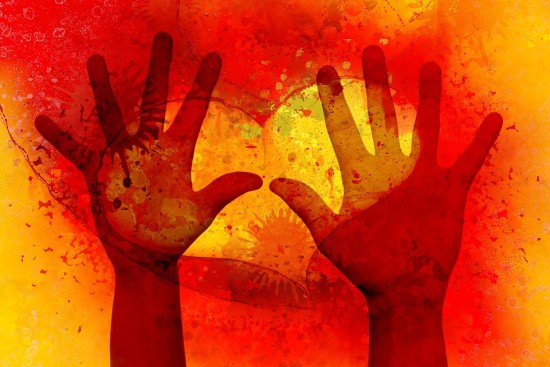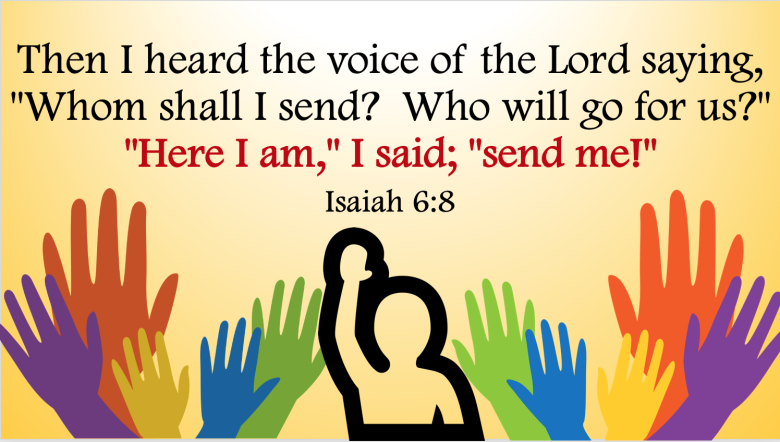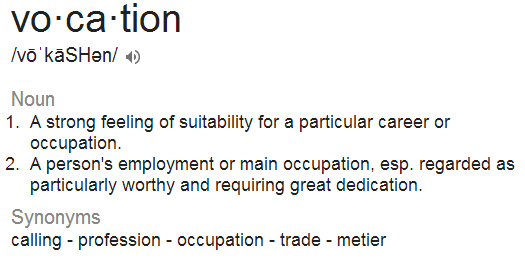I struggle with depression.
It’s hard to talk about this –this depression thing– because a lot of assumptions, judgments, silence, and well-meaning-but-misguided comments can be really damaging to a person who is already fragile and broken and overly-sensitive from fighting depression.
Right now, I’m doing really well. Right now, the depression is under control and manageable. So in some ways, right now is a good time for me to talk about it… because I’m not feeling so fragile.
More importantly, for the third time in the past year, I have been confidentially approached by a friend who struggles with this same life-sucking-beast… Each of these friends sheepishly ask if they are properly reading between the lines; do I struggle? And each time, I cry with them as I say yes. And I’m so sorry. Because it sucks so bad.
I don’t want to be the poster child for depression, in part because everyone’s experience is so very different… In part because declaring this to the nameless-faceless internet world makes me vulnerable in a way that I don’t particularly enjoy…
But my heart aches for those who suffer in silence and solitude. I do want to share some “wisdom” I have gained along the way, and if it offers you hope, then it’s worth the risk.
For people that don’t understand depression, the first thing they want to know is why? Why are you sad? What’s wrong? Clinical depression means that there is no good reason.
There are times in my life when a real crisis has prompted depression – sometimes there is a reason. I’ve heard that called “situational depression.” But the most confusing part for me was the time in my life when everything was beyond-my-wildest-dreams good, but I was not happy. I had actually transitioned from a not-great situation into a phenomenal one.
I had two babies under two in an area with no family, little community, and hardly any close friends. Then my husband got a new job with a great relocation package to an area that was a reasonable drive to my family. We sold our home in 10 days for full asking price. I landed a job working from home, writing for a textbook publisher. After looking at 45 homes in 4 days, we chose one that was a perfect fit for our family and had a lot more space at a lot less cost than our last one. A mere 6 weeks after we moved in, Hurricane Ike hit. We were in the mandatory evacuation zone, but with my family in Austin, we had a free place to stay, and the 60 foot pine tree fell away from the house. Upon returning from evacuation, I started writing and had the world’s greatest part-time nanny. Instead of contributing a couple of features to the textbook series, I developed the prototype for the teacher’s editions and went on to be a primary author. My husband was loving, supportive, and helpful in real, concrete ways. I joined a MOMS Club and befriended a great group of women and their children. My life was full of goodness.
And instead of being happy, the stress broke me.
You know that expression, “God doesn’t give you anything you can’t handle?” Well, I broke. It was just too much stress, and I spiraled into the deep, dark negativity of depression. In my depression, I believed every negative thought that crossed my mind.
- No one likes you. They’re just being “nice.”
- Every time you lose your temper and yell at these beautiful kids, you prove what a horrible mother you are.
- Your husband is going to get sick of your [stuff].
- Pretty soon the textbook publisher is going to realize what a fraud you are.
- Everything is out of control, and it’s all your fault because you can’t handle it.
That’s the thing about depression; it lies to you about what an awful, inadequate person you are. And you believe it.
I was just empty – except all the frustration I felt at every little thing, especially myself. My life was devoid of joy, while I was the mother to two loving, excited, exuberant, exhausting little boys, which made me feel even worse about myself. My marriage suffered when I finally admitted how I felt and just lay on the couch. After meeting deadlines and taking care of the kids’ basic needs, I didn’t even have the energy. For anything.
The depression impacted my spirituality in ways that are hard to explain. I used to feel connected to God, but in the midst of depression, nothing I did in prayer or worship helped… nothing was connecting for me. It all felt like going through the motions. When your job is to write about faith–when your profession is “religious educator”–and you’re not feeling connected to God at all, it’s kind of a problem.
In my book, Continuing the Journey, Chapter 11 is about “Spiritual Crisis.” What constitutes a spiritual crisis –much like depression– is different for different people. Essentially, a spiritual crisis is when you are going through a rough patch spiritually. From “Why is this happening God?!” to “Where are you God!?” and everything in-between. It’s the desert experiences in the landscape of spirituality… It’s when we earnestly pray, “My God, my God, why have you abandoned me” (Psalm 22:1). Not everyone who goes through a spiritual darkness is in a depression, but for me, there was definitely overlap. In my book, I noted that several well-known and influential people in the Christian tradition have struggled with this spiritual darkness, or what is often called “the dark night of the soul.”
- “St. John of the Cross is credited with the expression “dark night of the soul.” In 1577, John was abducted, imprisoned, and tortured for his part in working on reforms to the Carmelite Order. While in prison, John composed the poem Dark Night of the Soul.
- St. Teresa of Ávila was a close friend and contemporary of St. John of the Cross. After unexpectedly healing from a serious illness and professing great devotion to St. Joseph, Teresa began struggling so deeply with spiritual darkness that she stopped praying for nearly two years.
- C.S. Lewis wrote about his spiritual darkness in A Grief Observed. After years as an author, theologian, and expert in Christian apologetics, Lewis married his longtime friend Joy, who died of cancer only four years after they wed.
- Mother Teresa experienced a spiritual darkness that lasted for decades, which began shortly after she founded the Missionaries of Charity and started her work with the poor.” (Continuing the Journey, 47)
Reflecting on the idea that saints and holy people alike have struggled with the dark night of the soul gave me tremendous hope. If they struggled with this emptiness, maybe it wasn’t a sign of my inadequacy and weakness… but rather maybe it was just a part of my story.
So getting back to my story: with the help of a really good therapist, the right anti-depressant, spiritual direction… and a lot of patience, and I came through it.
It took a few tries to get the right anti-depressant. The first one numbed me… it was better that I wasn’t feeling so negative, but I also wasn’t feeling joy. The second one worked for a bit… until it didn’t. The third one was the charm. While I worked with a psychiatrist to tinker with the right dosage of the right medication to get the chemicals in my brain to behave, I took the opportunity to work with a great counselor. She helped me differentiate between what was real and what was my skewed interpretation of things courtesy of depression.
Depression lies. It makes you not trust your own judgment. It makes you feel like you deserve the negativity and emptiness. Counselors can help you wade through this before, during and after the medication takes effect.
Counselors can also help you identify the warning signs of depression. And triggers. For me, stress triggers depression.
Last spring and summer, I worked my tail off to finish writing and publish my book. Without money for childcare, I wrote about half of the book after the boys finished their school year. That was extremely stressful. And the depression came back.
As difficult as it was to admit that the depression was back, as difficult as it was to manage the stress, as difficult as it was to function, this time there were a few differences.
We had houseguests–a very special family of houseguests–in late-May. As per my depression, everything annoys and frustrates me. In this case, I had been annoyed and frustrated that one of these very special houseguests (“H”) was blowing off quality time visiting. Now I knew that H struggles with anxiety and depression, but I hadn’t realized that when H would leave for large chunks of time to “go on a walk,” it was to work out the extra energy that accompanied the anxiety. I was humbled. And impressed by how insightful and courageous it was for H to prioritize self-care. Because in the end, doing so made H a better parent, spouse, sibling, and friend. And an awesome one, at that.
H and the family of very special houseguests extended their stay by a day because we were having such a wonderful visit. After they left, I reflected on H’s insight, courage, and commitment to manage the anxiety and depression. And I made an appointment to see my doctor about getting back on the anti-depressant.
Here’s what the anti-depressant does: it helps me be a little more in control of my spiraling emotions, which decreases the negativity just enough.
In the midst of all of this, I was also working on a retreat with an amazing group of women. I felt that God was calling me to honestly share my struggle with depression, but I had no idea what to say. Or why. I actually got a little angry with God about this point. After spending hours trying to figure out what to write, I sat back in my chair, leaned away from my laptop, raked my hands through my hair, looked up and yelled, “You want me to talk about this? Then tell me what to say! Because I don’t get it. I’m done.” It was nearly midnight and I was now frustrated and annoyed with God, so I walked away from the computer and went to bed.
The theme of the retreat came from Matthew 28:20 “I am with you always.”

At 5:51 am, I awoke with tremendous clarity, feeling fully refreshed.
I realized that in the midst of the darkness of depression, God never stopped whispering: “I am with you always.”
From the timing of the very special Houseguests, to my friends, to the community of women I shared my retreat with, to my husband, to my boys, God never stopped whispering his love.
Instead of accepting the lie of self-doubt and loneliness that depression brings, I began to see–and try to feel–the adoration of God. As I sat at my desk that morning, trying to put into words how God whispers “I am with you always” to me, my 8-year-old son came bounding in to my home office just to give me a hug and kiss and tell me, “I love you, Mommy.”
That’s how I came to see and experience spirituality in depression: I surrendered to undeserved love. And through the arms of my child, God hugged me.
For all the negativity I feel in the depression, God still manages to remind me I am with you always and I adore you.
This called my home by Daniel Wehner licensed under CC BY 2.0
If you enjoyed this post, Please Share









 The change in his whole being is evident: physically, emotionally, mentally, and I’d venture to say even spiritually. Instead of withdrawing into his mancave of memories, Mr. Incredible starts flirting with his wife and being more present to his family.
The change in his whole being is evident: physically, emotionally, mentally, and I’d venture to say even spiritually. Instead of withdrawing into his mancave of memories, Mr. Incredible starts flirting with his wife and being more present to his family.
